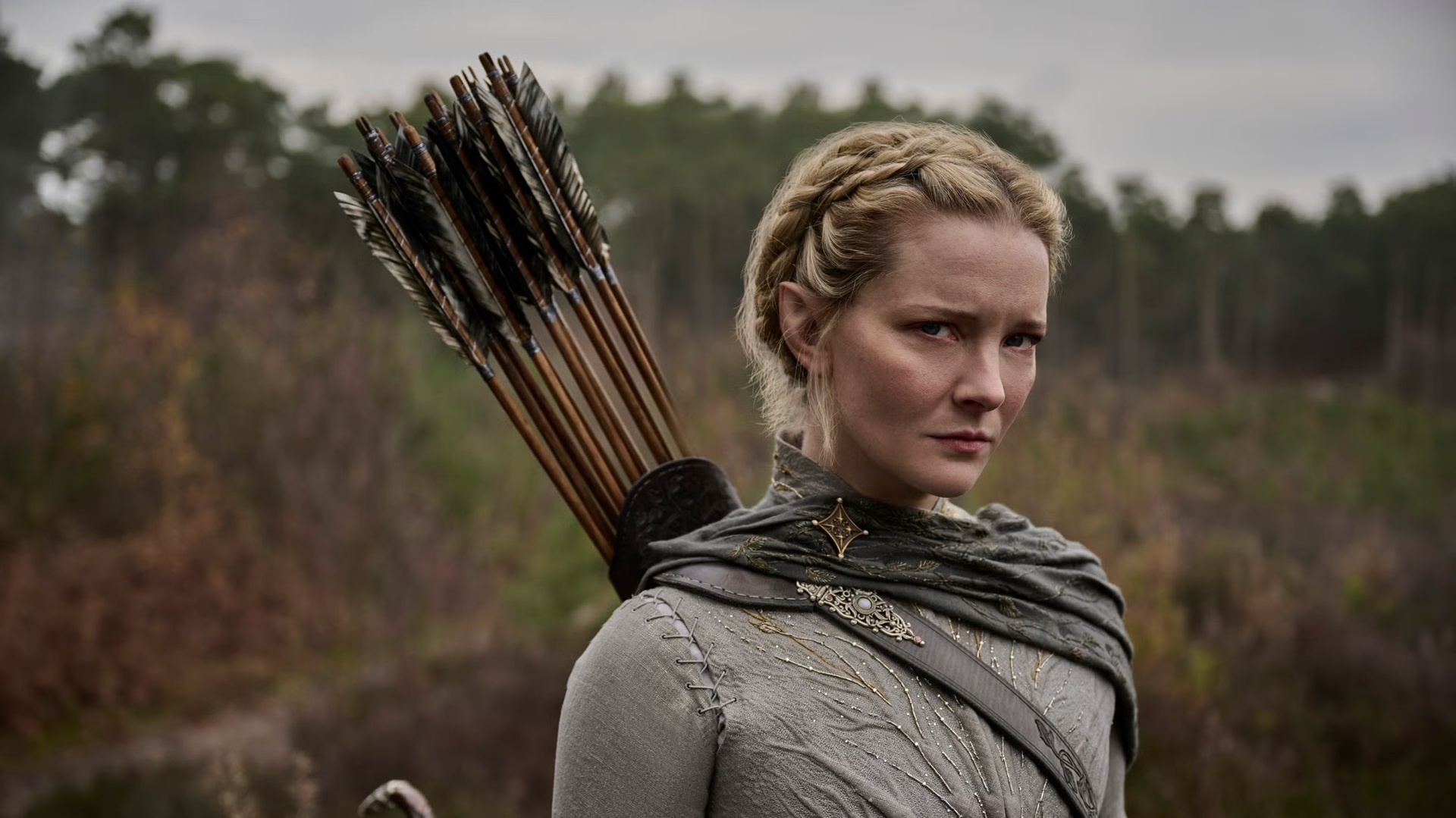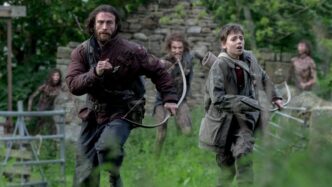As someone who has been a long-time fan of Peter Jackson’s The Lord of the Rings trilogy, Rings of Power season two was a highly anticipated, yet ultimately disappointing return to Middle-earth. I had hoped that Rings of Power season two would build on the visual spectacle of the first while improving on its scattered storytelling and lack of emotional depth. But after watching the full season, including its much-hyped finale, I find myself more confused and frustrated than ever. Rings of Power season two may look like Middle-earth, but it doesn’t feel like it.
I came into Rings of Power season two not just with nostalgia for Jackson’s movies but with an eagerness to explore a different era of J.R.R. Tolkien’s legendary world. This series, set in the Second Age of Middle-earth, has the potential to dive into rich, unexplored territory—the rise of Sauron, the forging of the Rings of Power, and the fall of Númenor. These are monumental events in Tolkien’s lore, and the opportunity to see them unfold on screen is something any fan should be excited about.
But two seasons in, it feels like Rings of Power season two is stumbling under the weight of its own ambition. What should be an epic retelling of history has instead become a convoluted, disjointed series of plotlines that struggle to connect. And for all its breathtaking visuals, Rings of Power season two continues to lack the heart and soul that made The Lord of the Rings so beloved.
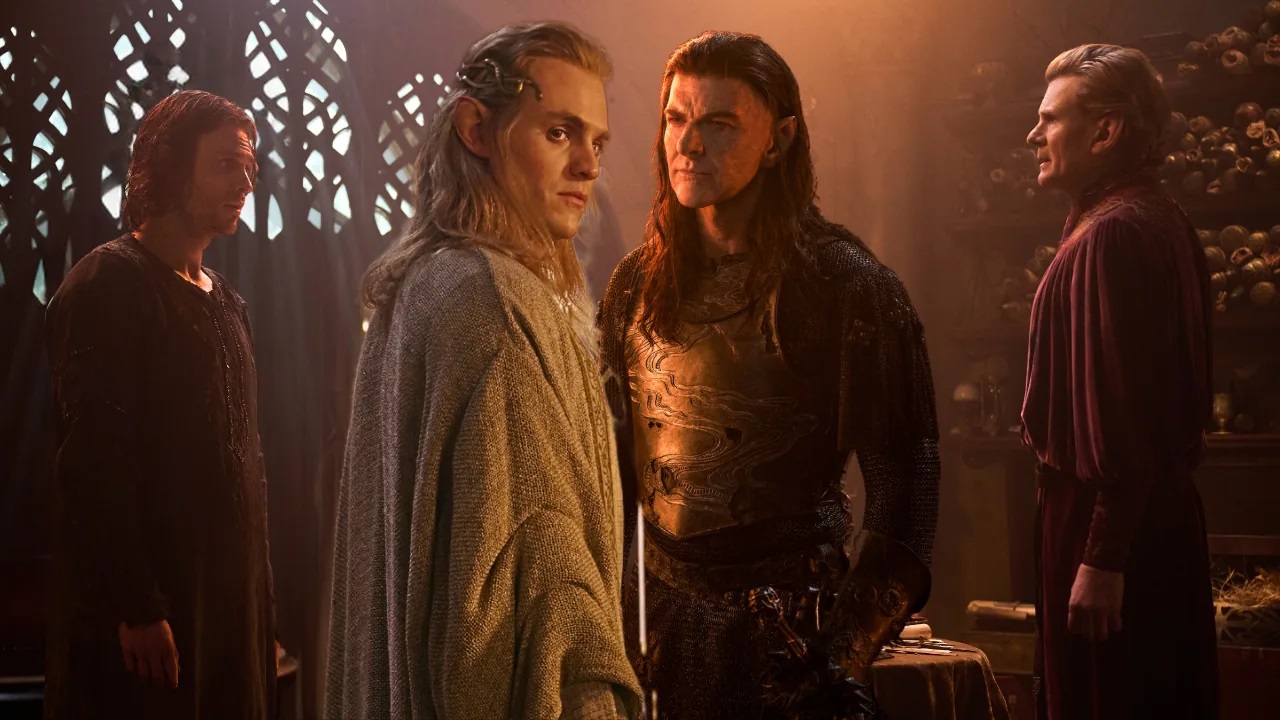
Season two doubles down on Sauron’s story, continuing from the somewhat predictable reveal in season one that Halbrand is, in fact, the Dark Lord. While this twist could have been an interesting setup for deeper exploration into Sauron’s manipulation and rise to power, the show fumbles the execution. The problem isn’t that we know who Sauron is—it’s that Rings of Power season two keeps pretending we don’t, dragging out a sense of mystery that simply doesn’t exist anymore.
One of the most significant challenges with Sauron’s arc in Rings of Power season two is that we, as viewers, already know where the story is going.
It’s not a spoiler to say that Sauron will ultimately forge the One Ring, deceive the elves, and plunge Middle-earth into darkness. The issue lies in how Rings of Power season two handles this inevitable outcome.
Instead of building tension around Sauron’s rise, the series leans heavily on unnecessary misdirection. The reveal that Halbrand is Sauron was so telegraphed in season one that by the time the show confirmed it, it lacked any real impact. And now, in Rings of Power season two, the story seems stuck in this frustrating limbo—Sauron is trying to manipulate those around him, but the audience is always several steps ahead of the characters.
The relationship between Sauron and Celebrimbor, for example, should be a fascinating exploration of deceit and hubris. Celebrimbor, the greatest elven smith, is tricked into crafting the Rings of Power, believing that his collaboration with Sauron will lead to great things for the elves. But the execution of this storyline is disappointingly shallow.
We know that Sauron’s true goal is to dominate Middle-earth, yet Rings of Power season two insists on dragging out the deception, making Celebrimbor’s eventual betrayal feel inevitable rather than tragic.
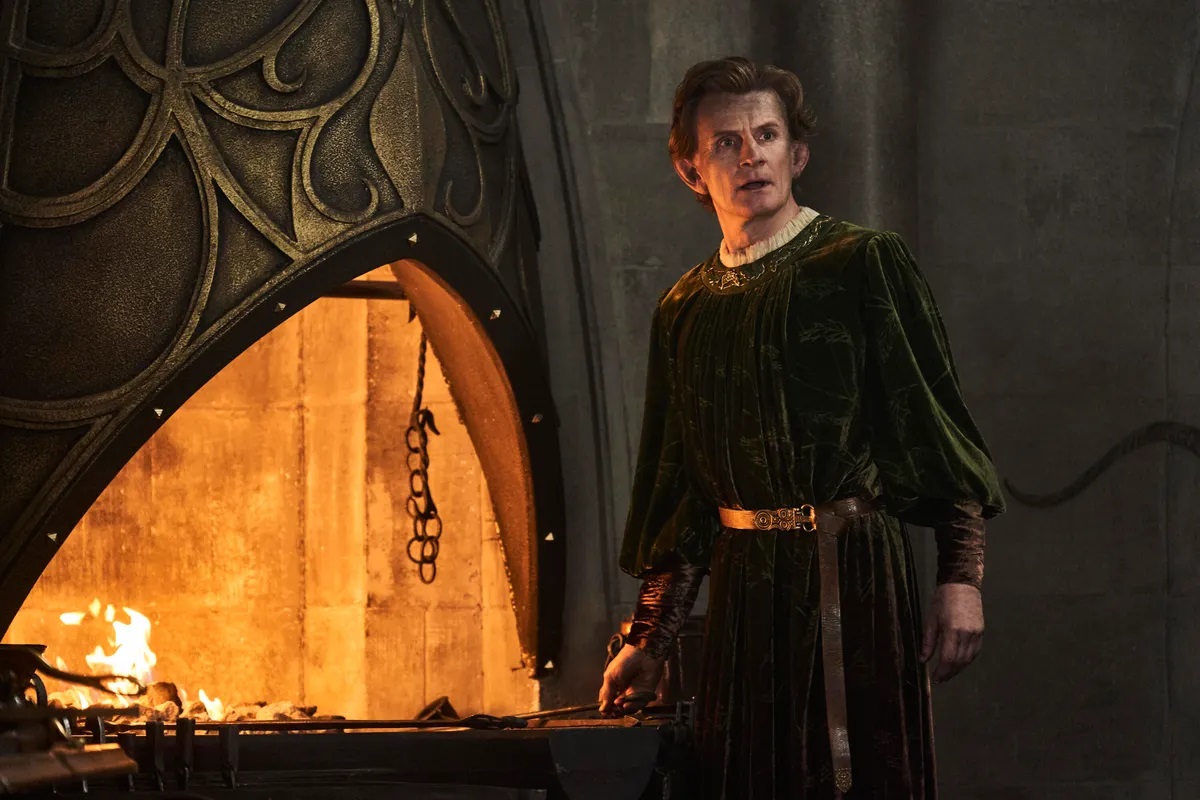
In Jackson’s films, Sauron was terrifying precisely because he was a looming, faceless evil. We didn’t need to know the specifics of his backstory; his presence was felt in every shadow. Here, though, Rings of Power season two humanizes Sauron in a way that robs him of his menace. The writers seem intent on making us sympathize with him as a figure who has suffered for his ambitions. But the result feels flat and, frankly, unnecessary. Sauron is meant to be the embodiment of evil in Middle-earth—why complicate that with tedious backstory flashbacks?
Galadriel’s arc in Rings of Power season two is another example of the show’s struggle to balance its ambition with its execution. In Tolkien’s mythology, Galadriel is one of the most powerful and revered figures in Middle-earth—a wise and ethereal leader who resists the temptation of the One Ring and plays a crucial role in the fight against Sauron. In Jackson’s films, Cate Blanchett’s portrayal of Galadriel captured this sense of otherworldly grace and quiet strength.
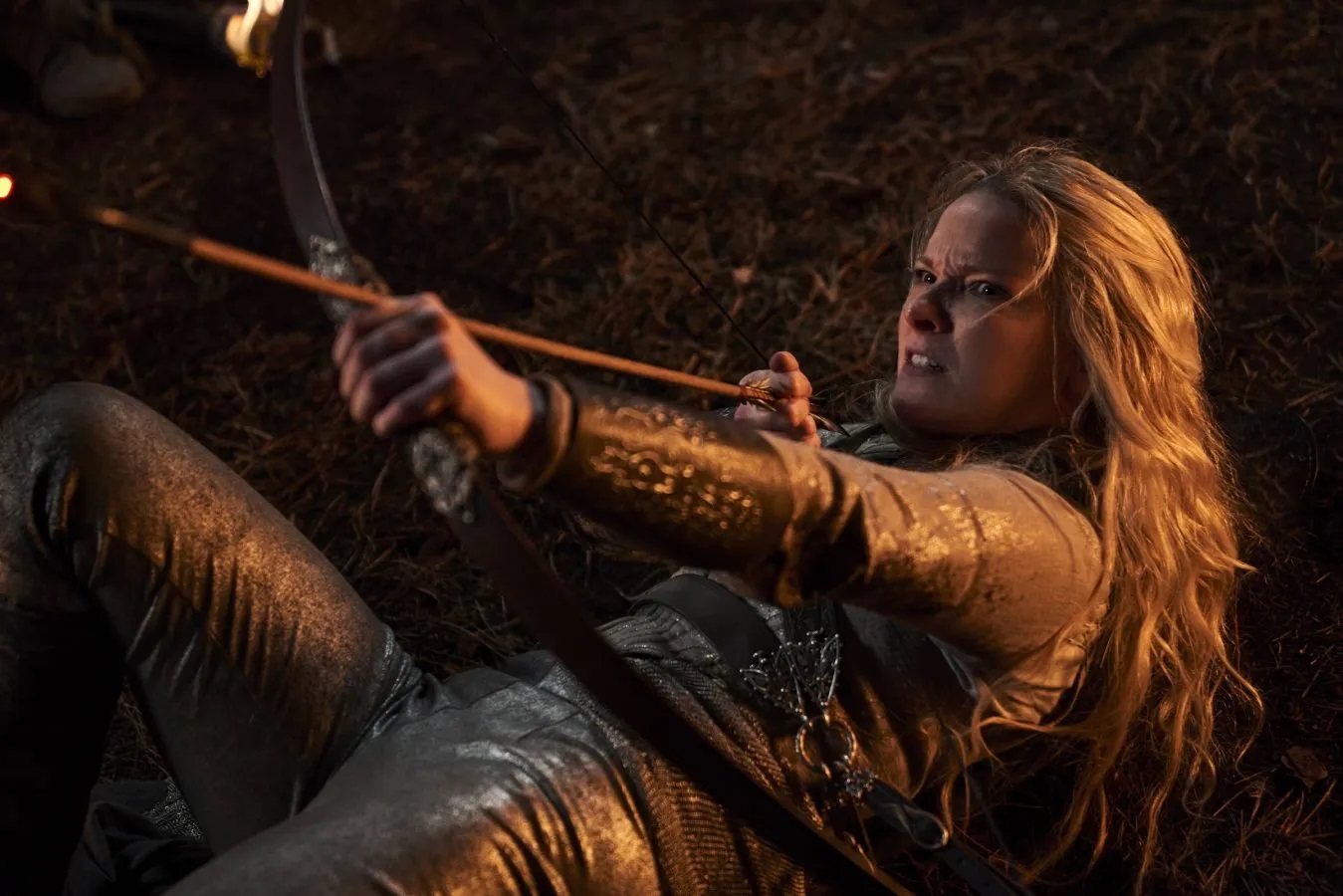
In Rings of Power season two, however, Galadriel’s characterization feels off.
The show positions her as a warrior consumed by vengeance, driven by her desire to hunt down Sauron and avenge her fallen kin. While this version of Galadriel is undoubtedly fierce, she lacks the wisdom and depth that defined her character in the source material.
Her relentless pursuit of Sauron often makes her seem one-dimensional, and her interactions with other characters are often cold and distant.
There’s a moment in Rings of Power season two where Galadriel faces Sauron (disguised as Annatar) in a confrontation that should have been a highlight of the season. Instead, it feels hollow, with both characters spouting dramatic lines that fail to resonate emotionally. Galadriel’s obsession with vengeance has become her defining trait, but without moments of vulnerability or introspection, it’s hard to root for her. We don’t see the internal conflict that should come with being a leader of her people, or the burden of carrying the weight of Middle-earth’s fate on her shoulders. Instead, she’s reduced to a single-minded warrior, and while that might make for some impressive action scenes, it robs her character of the complexity she deserves.
One of the major issues with Rings of Power season two is its overwhelming number of plotlines. In Jackson’s films, even with the vast world and sprawling cast of characters, the story was always focused. There was a clear goal: destroy the One Ring. Every subplot, every side character, ultimately connected back to that central narrative.
Rings of Power season two, on the other hand, feels like it’s trying to tell too many stories at once. We’re constantly jumping between Númenor’s political unrest, the Harfoots’ journey with the Stranger (who is clearly Gandalf, despite the show’s half-hearted attempts at ambiguity), and the various conflicts in the Southlands and Eregion. None of these storylines have enough time to develop fully, and as a result, they all feel undercooked.
Númenor, in particular, is a frustrating missed opportunity in Rings of Power season two. This is a kingdom on the brink of its own destruction—a place rich with political intrigue and moral conflict. But the show spends so much time juggling other subplots that Númenor’s significance is lost in the shuffle.
Instead of exploring its inevitable fall, we get surface-level conflicts and a lot of bickering that doesn’t feel grounded in the emotional stakes that should be driving the story.
Even the Harfoots, who are clearly meant to evoke the same charm and heart as the hobbits in The Lord of the Rings, fall flat. Their storyline with the Stranger drags on without much progression, and while there are moments of levity and warmth, it never reaches the emotional heights of Frodo and Sam’s journey. Rings of Power season two seems more interested in teasing the Stranger’s true identity than in developing meaningful relationships between the characters.
If there’s one thing Rings of Power season two does well, it’s visual spectacle. Season two continues to deliver on the stunning visuals that made the first season such a treat for the eyes. The landscapes are breathtaking, the CGI is top-notch, and the battle scenes are as epic as you’d expect from a show with this kind of budget. But as beautiful as Rings of Power season two is, it feels like empty spectacle.
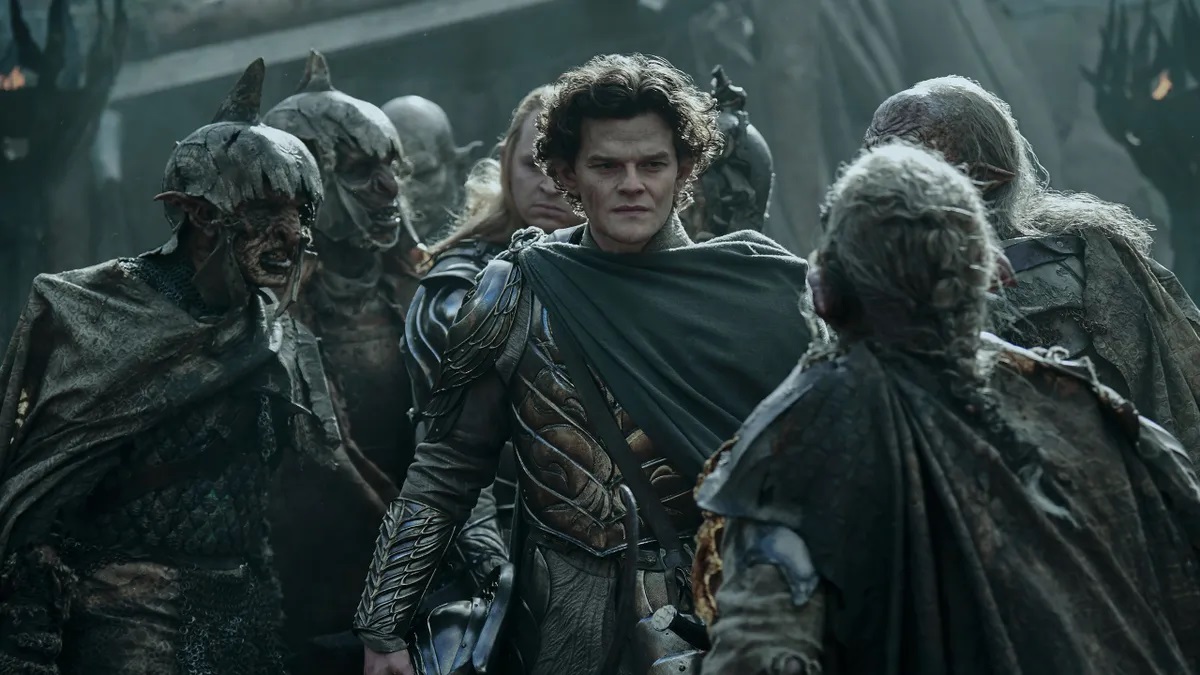
In Jackson’s Lord of the Rings, the battles were epic not just because they looked cool, but because we cared deeply about the characters fighting them. Helm’s Deep, for example, was not just a stunning set piece—it was the culmination of Aragorn’s journey, the hope of Rohan, and the desperate fight for survival.
In Rings of Power season two, the battles and action sequences feel disconnected from the emotional stakes of the story. We see grand, sweeping shots of armies clashing, but without a reason to care about the outcome, the spectacle quickly loses its impact.
This lack of emotional connection becomes particularly noticeable in the Rings of Power season two finale. While I won’t spoil the major developments, it’s safe to say that the finale delivers on the promise of epic action, including a key confrontation that the season had been building toward. The battle is grand, with the kind of visual effects you’d expect from a show with Amazon’s budget. But despite the scale, the emotional weight that should accompany such a climactic moment is absent. Characters are making big, dramatic choices, but it all feels distant, as if the spectacle is happening without pulling the audience in.
This is the core issue with Rings of Power season two. The show looks like Middle-earth, it feels like Middle-earth in a superficial sense, but it lacks the heart and soul that made Peter Jackson’s trilogy such a cultural touchstone. In The Lord of the Rings, every battle, every quiet moment of dialogue, felt charged with meaning because we were deeply invested in the characters. In Rings of Power season two, there’s a disconnect between the spectacle and the story, leaving much of the season feeling hollow.
One of the core issues with Rings of Power season two is its identity crisis. The show is clearly trying to build on the legacy of Jackson’s films, borrowing heavily from their aesthetic and tone. But it’s also trying to carve out its own path, incorporating elements from Tolkien’s lore while taking creative liberties with the timeline and characters.
The result is a show that feels like a patchwork of Tolkienesque ideas without a clear vision. It’s stuck somewhere between honoring Tolkien’s world and creating something new, but in trying to do both, it succeeds at neither. Rings of Power season two lacks the thematic coherence and emotional depth of Jackson’s trilogy, and its attempts to forge new ground are hampered by its reliance on familiar tropes and characters.
At the end of the day, Rings of Power season two is a visually stunning but narratively hollow experience. As a fan of Peter Jackson’s Lord of the Rings, I wanted to love this show. I wanted to feel the same sense of wonder and emotional connection that made the films so iconic. But Rings of Power season two feels more like a collection of disjointed plotlines and impressive visuals than a cohesive, emotionally engaging story.
There are moments of potential—glimpses of the epic fantasy that could have been—but they’re buried under layers of convoluted storytelling and characters that are difficult to care about. I’ll keep watching, hoping that the show finds its footing in future seasons, but for now, Rings of Power season two remains a beautiful yet frustrating journey through a Middle-earth that feels more like a pale imitation than a true return to the world I love.
